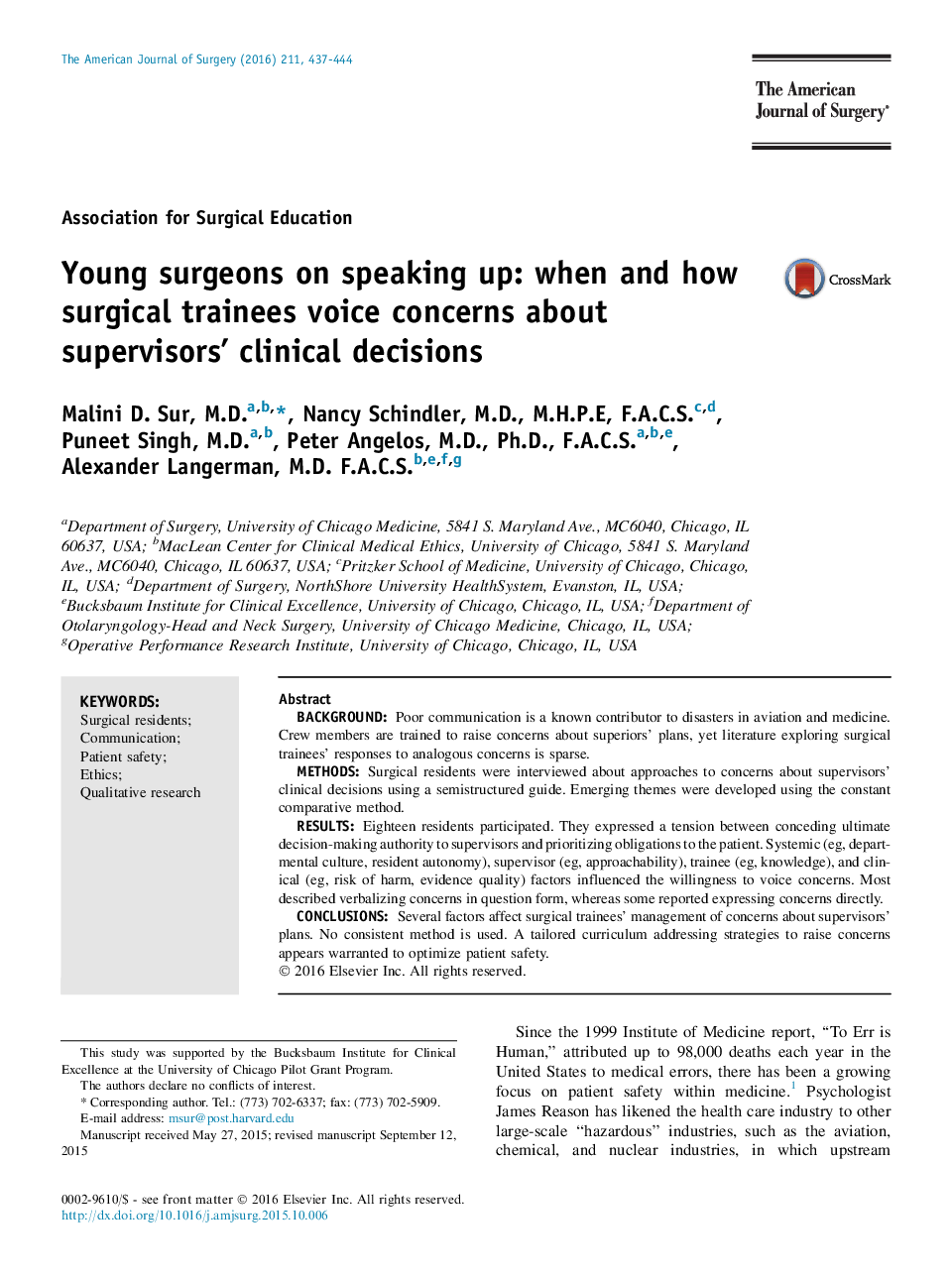| Article ID | Journal | Published Year | Pages | File Type |
|---|---|---|---|---|
| 4278163 | The American Journal of Surgery | 2016 | 8 Pages |
BackgroundPoor communication is a known contributor to disasters in aviation and medicine. Crew members are trained to raise concerns about superiors' plans, yet literature exploring surgical trainees' responses to analogous concerns is sparse.MethodsSurgical residents were interviewed about approaches to concerns about supervisors' clinical decisions using a semistructured guide. Emerging themes were developed using the constant comparative method.ResultsEighteen residents participated. They expressed a tension between conceding ultimate decision-making authority to supervisors and prioritizing obligations to the patient. Systemic (eg, departmental culture, resident autonomy), supervisor (eg, approachability), trainee (eg, knowledge), and clinical (eg, risk of harm, evidence quality) factors influenced the willingness to voice concerns. Most described verbalizing concerns in question form, whereas some reported expressing concerns directly.ConclusionsSeveral factors affect surgical trainees' management of concerns about supervisors' plans. No consistent method is used. A tailored curriculum addressing strategies to raise concerns appears warranted to optimize patient safety.
